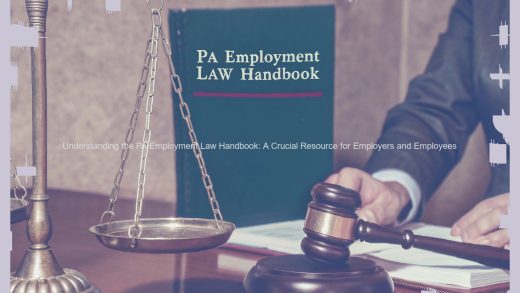What Is a Legal Service Agreement?
Contextually tied to retainer agreements, a legal services agreement is typically a contract that outlines the specific terms for legal services between a lawyer and a client. These agreements serve several purposes, not the least of which is to provide clients with a firm understanding of the services being offered to them and the associated costs. Upon signing, a legal services agreement is binding on both parties and provides a great point of reference for parties that may be in disagreement over the fees for legal services provided.
In most cases, the terms for a legal services agreement are typically dictated by the attorney or law firm and, as such, are subject to negotiation. There are certain terms that are expected within these agreements, however, including a description of the legal services being rendered, pricing and estimates for the legal services, a reminder regarding the responsibility for court costs, a list of all people included in the legal services agreement, the definition of payment terms, plus such details as the periods for calendar and expiration dates of the contract, terms for termination, and most importantly, payment terms .
In NY, the New York State Unified Court System has also created its own legal services agreement that regulates the provision of rather basic legal services provided by independent attorneys in the field of family law. Thousands of these agreements are signed by clients who use them before retaining the attorney for any work on a case.
Ultimately, the purpose of a services agreement in legal contracts is to provide a clear understanding of the services being rendered, the specific fees associated with those services, and a general idea of the types of things that can occur during the course of those services that could require additional fees. Although these agreements provide a lot of information to both attorney and client, in reality the contracts tend to be heavily weighted in favor of the attorney, requiring the client to submit payment for services in advance before work can begin and showing a rather different view of the types of work that are required and the fees typically charged for each.
Essential Components of a Legal Services Agreement
The components of a typical legal services agreement vary somewhat from firm to firm, but there are several features that most agreements will have in common. The most basic components of an agreement include:
Scope of Services: Attorneys have an ethical obligation to enter into written fee agreements with their clients. The scope of services that an attorney is expected to provide must be clear. Clients should review a new attorney’s fee agreement to understand how the law firm will approach their representation.
Payment Terms: The terms of payment as outlined in the fee agreement should be reasonable. If the attorney or firm expects to charge for "extra" costs that are not included in the retainer agreement, clients should carefully compare the rates and understand the billing policies.
Confidentiality and Privilege: A non-disclosure clause in the agreement will outline the attorney-client privilege and its limitations. The attorney must keep the communications between attorney and client confidential. However, the law requires attorneys to disclose information if there is a reason to believe, in good faith, that a client (or someone working for the client) is likely to be involved in a criminal offense if the information is not disclosed.
Termination of Services: Most attorney-client relationships may be terminated by either party. A clause for termination provides both parties the right to end the agreement when they choose to do so. However, an attorney may not terminate a representation in the middle of a matter or trial without good cause. If the attorney does not have good cause, the attorney may have to obtain a court order allowing them to withdraw from the matter. Clients are also advised that they may cancel their agreement at any time. With that said, there is a 30-day cooling off period for fee agreement cancellations, which may be discussed in the agreement.
Different Types of Legal Services Agreements
A Retainer Agreement – An Arrangement Where a Client or a Firm Retains Counsel for a Future Matter. Some firms prefer to have clients pay a retainer for future legal services, instead of requiring them to pay for each service as it is performed. In addition to providing a cushion against non-payment, a retainer agreement can be useful in managing the money of a client who is likely to only need sporadic legal services. Retainers can function much like "bank accounts," where the funds are deposited into an account and are directly withdrawn as legal fees are owed. To the extent this is the case, the agreement should specify: A Contingent Fee Agreement is used when the attorney receives a percentage of the client’s recovery, such as in a personal injury case. Such fee agreements are very common in personal injury cases where the law firm receives its fees from the damages or settlement received (as opposed to the hours the law firm spends on the case). The agreement should state: The Flat Fee Agreement is periodically paid only for specific services, regardless of the time which is expended or other fortuitous and unanticipated costs or expenses incurred by the firm. This type of contract is often used when a firm charges clients a flat fee for a specific service. Often the fee is paid upfront before rendering services, but in some cases the fee can be paid on a delayed basis. The agreement should include: The Subscription Fee is a set and fixed monthly subscription fee in exchange for a specific number of hours of service from the attorney. The monthly subscription fee can be automatically deducted from the client’s account by the client’s authorized agent.
How to Create a Legal Services Agreement
Legal services agreements should be drafted in a clear, concise and unambiguous manner. They can be as brief as two or three pages to cover an engagement to draft a will or a medical directive. But they can swell to 10 or 20 pages where there are many complex issues and multiple parties involved. Clarifying issues such as fee arrangements and scope of legal services and retaining control over generated documents and related Work Product are essential to the engagement process and the lawyer’s continued representation.
Clarity helps avoid the serious problems that arise when agreements lack specificity and detail, which can lead to a breach of contract claim by the client or a malpractice claim by the client’s adversary in a later lawsuit. There is no substitute for good verbal explanations throughout the engagement process. It’s also essential to educate the client to assure the client understands the legal services involved and the causes of action the client may have. It goes back to the basic lawyer-client relationship where communication is paramount. If the lawyer believes the client does not understand the engagement process or any of its consequences, obvious from facts and circumstances, the lawyer should not embark on the representation.
The Importance of a Lawyer in Negotiating Legal Services Agreements
The negotiation of a legal services agreement typically begins at the end of an initial consultation between a client and a prospective lawyer. The agreement’s negotiation is driven in large part by the prospective lawyer’s assessment of the client’s legal needs, the client’s ability to pay, and the prospective lawyer’s available resources. The discussion that precedes the negotiation of a legal services agreement also includes preliminary information regarding the likely scope of the work to be performed, as well as some brief description of the lawyer’s proposed fees and retainer. For dependent matters, fixed fees are increasingly common and may escalate based on the value of the property to be transferred or in proportion to the fees incurred, particularly when there will be uncertain billable time to perfect an application. Payment of the retainer is often the first step toward opening a file. A retainer enables the prospective lawyer to commit his or her time and energy to the new matter and to get started on the initial work. Any retainer is anticipatory in the sense that it will only be paid out to the extent the fees and disbursements, as provided in the agreement, justifies the fee and disbursement amounts by compelling the lawyer to complete work before any further retainer is to be paid by the client. If the retainer is not sufficient to cover the fees and disbursements, the lawyer will not be unduly prejudiced.
The legal services agreement is often the first indication of the prospective lawyer’s attentiveness to detail. The document attributable to an experienced counsel avoids the boilerplate, providing a concise and specific document that addresses relevant concerns. Complete legal services agreements help avoid conflicts of interest by eliminating prejudicial generalities, such as those found in a common agreement, which is usually signed by a client without a clear understanding of its implications. Depending on whether the agreement is for dependent or independent services, different considerations apply where the contract is later used to obtain enforcement of a lien .
Whether or not you hire a lawyer to draft a schedule of fees or a retainer letter, any lawyer will usually be prepared to amend or supplement them before signing the written agreement. This is a good time to consider whether the lawyer’s terms are fair and reasonable. One way of assessing this is to ask yourself whether you would be comfortable signing the same terms with a different lawyer. If not, then at the very least, give your agreement another look. An exception to this might be where the lawyer is highly sought after and there are substantial obstacles to changing lawyers at short notice.
An important clause in many legal services agreements provides for the imposition of arbitrary fees if the client terminates the relationship before completion, on the ground that the services were not fully rendered. This can be a useful clause for protecting a lawyer’s interests, but it can be desired as much by the client as by the lawyer. The clause, however, may be sought by lawyers in circumstances where they might refuse to work for a prospective client if the client had simply tried to change lawyers without need of justification. In other words, the provision can deprive the client of the right to test the waters with the lawyer.
A right to terminate a lawyer-client relationship does not, of course, justify the termination of the relationship in faulty circumstances. If a client remains unsatisfied with his or her lawyer, after a few months, the prospective client may question whether the lawyer is really committed to completing the work. This is particularly true if the work is pending in a court registry and there have been delays in processing the files. Many of the charges associated with a retainer are easily avoided by changing lawyers at the outset of a case, but continuing with a lawyer who seems unwilling to address issues is often a bad idea. This is true even where full fees authorized by the retainer have been paid.
Potential Pitfalls with Legal Services Agreements
Common Misunderstandings Surrounding Legal Services Agreements
In the course of providing legal services, misunderstandings can occur between the client and the law firm. Typically, this occurs when the agreement that establishes the scope of services has not been well drafted or communication between the parties has been poor. In some cases, the misunderstanding is an honest difference of opinion as to what the agreed upon scope of services covers.
Below are some examples of typical misunderstandings we have encountered. In each case, the misunderstanding falters once the scope is documented in sufficient detail and the parties have discussed the business terms of the engagement.
In-house counsel and general counsel
Scenario: A company hires a large law firm and assumes that the law firm will have sufficient recall of how frequently it has handled similar matters for the company. The general counsel at the parent company assumes that the law firm will also remember the previous work done for the subsidiaries within the corporate group.
Misunderstanding: The law firm does not have sufficient recollection, and again the client assumes the law firm knows all of the facts and circumstances surrounding the engagement. The law firm cannot have sufficient recollection of all of the facts and circumstances faced by the client if they were not presented by the client or documented in sufficient detail.
Resolution: The law firm requests input from the client, and the scope of services is documented. The client may also want to have separate agreements regarding matters for the parent company and the subsidiaries.
Legal Practice Group with Insurance Company Client
Scenario: A large insurance company has a single policy in which it places all of its claims and litigation from both the U.S. and its European branch.
Misunderstanding: 3M wants to ensure its interests are protected when the policy is renewed annually. The law firm believes the natural tendency is for the firm to assume the lead role in any litigation. The law firm is also concerned about whether it will be compensated at the same rate for matters in which they are not lead counsel.
Resolution: The law firm states in the engagement letter that it wants to be named as a co-defendant with the insurance company, and the law firm wants to be paid at the full hourly rate it charges in the United States.
Hourly Billing Rate and Non Hourly Rates
Scenario: In our experience, clients have told us that their law firms charge non hourly rates in addition to hourly rates for certain services. Some have said that they understood the law firms to be charging them flat fees for certain matters.
Misunderstanding: The client appears to be under the impression that certain matters or engagements are handled for a flat fee even though they are assigned to a senior partner rather than a junior associate.
Resolution: The law firm agrees that, although certain matters will not be performed by a junior associate, the time and expenses will be billed to the client in accordance with agreed hourly rates.
When to Review and/or Update Your Legal Services Agreement
In addition to the reviews performed regularly for optimizations, a legal services agreement needs to be reviewed whenever there is an alteration of the scope of the legal services being provided to a client. Scenarios can arise that may require the review or amendment of these agreements, such as: In any of these situations, it could very well be the case that a review or revision of a legal services agreement is warranted so that both the attorney and client are kept on the same page with what is expected during the period when legal services are going to be rendered. A simple revision may be all that is needed whenever any of these situations arise and no new agreement is typically needed between an attorney and a client that would be able to clearly define the variable of the situation that is taking place. The bottom line here is that both attorneys and clients are well advised to periodically review the legal services agreements that are currently in place to ensure optimal service to the client and to make any adjustments that are needed. If there is anything complicated about your needs as a client – whether a high degree of urgency, a somewhat time restricted or heavily charged legal environment, or otherwise – don’t shy away from having an updated contract written up to simply confirm what you as a client need to expect and what the attorney or law firm in question will be expected to provide.
Legal Services Agreements in Other Jurisdictions
Legal services agreements are found in virtually all jurisdictions. Most countries and many states in the U.S. require that legal services agreements be in writing, and many require them to be signed by the client and the lawyer. Other states do not require written agreements but require lawyers to provide information about fees and expenses and to otherwise communicate clearly and honestly with clients about fees, often requiring a letter or email confirming the terms of the representation. States that do not have formal rules of this kind often impose requirements through case law. Some states follow the Uniform Rules of Court in requiring written agreements in certain situations. In states which have adopted rules that draw from the American Bar Association’s Model Rules for Professional Conduct , Rule 1.5 requires that clients give informed consent before agreeing to a fee agreement that is contingent on the outcome of the matter being handled by the lawyer.
Because it is not always easy to figure out whether such rules exist and if so, what they are, it is critical that lawyers who are responsible for obtaining their clients’ agreement to legal services agreements know the law in the relevant jurisdiction well. For example, if the attorney-client relationship is with a corporation, the consent needed under Model Rule 1.5 may be easier to obtain than if the client were an individual.



